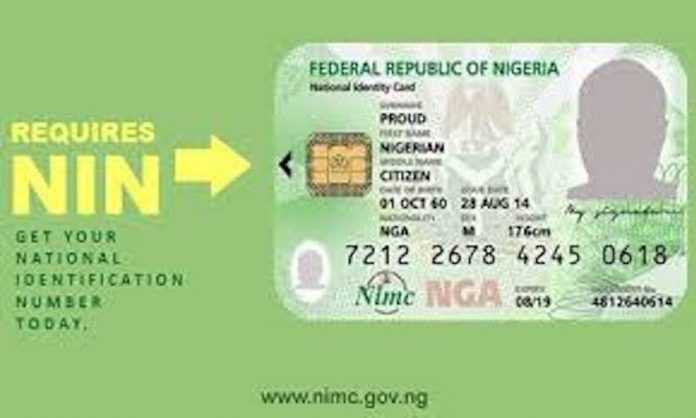Justice Maureen Onyetenu of the Federal High Court sitting in Lagos has ordered the extension of the deadline for National Identity Number registration by two months effective from Tuesday, March 23.
She gave the order while delivering a ruling in a fundamental right suit filed by a legal practitioner, Monday Ubani, against the Nigerian government, the Attorney General of the Federation, the Nigerian Communications Commission, and the Minister of Communication and Digital Economy.
Ubani who is the chairman of the Nigerian Bar Association, Ikeja branch, argued that the initial two weeks ultimatum (now extended to April 6, 2021) given to telecommunications operators to block SIM cards of Nigerians who have not registered their SIM cards with NIN, will infringe on their constitutionally guaranteed right to freedom of expression, right to own moveable property and right to life.
He, therefore, asked the court for an order halting the said ultimatum and extending the deadline.
Ubani also asked the court for; a declaration that the ultimatum given to telecommunications operators by the 1st, 3rd and 4th Respondents to block all Subscriber Identification Modules (SIM) cards that are not registered with NIN, is grossly inadequate and will not only work severe hardship. He added that such will likely infringe on the fundamental rights of the Applicant (and millions of other Nigerians) to freedom of expression, as well as violate the prohibition of compulsory acquisition of right or interest over the moveable property.
Part of the court paper read:
“A declaration that in view of the Covid-19 pandemic and the rising cases in Nigeria presently, the deadline was given by the 1st, 3rd and 4th Respondents to the Applicant and over 200 million Nigerians to register their SIM Cards with NIN, will lead to a rush, thereby resulting to clustering of the Applicant and other Nigerian citizens in a NIN registration centre, subjecting him to the possibility of easily contracting the Covid-19 virus, and such will amount to a violation of his fundamental right to life as protected by section 33(1) of the 1999 Constitution of the Federal Republic of Nigeria (as amended).”












